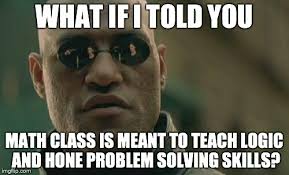I am getting caught up now and this week's focus in on creating rich tasks in a math classroom. It has been really interesting. I wish that my teachers had this information when I was a math student. I would have actually looked forward to math class.
My task for today is to post a list of characteristics of a rich math task. This has been gleaned from several readings.
Rich math tasks:
- focus on key concepts
- stimulation communication
- captures student interest/engages
- promotes understanding of the concept
- connects to one or more big ideas in the currciulum
- will require that students reason their way to a solution
- allow more than one strategy for arriving at a solution
- require students to explain and justify their thinking about their solution
- don't inlcude information being fed to students in order to do a computation
- encourage student intuition
- has a short question
- lets students ask the questions
- are challenging for most students
- uses contest or situations that are familiar for the students


